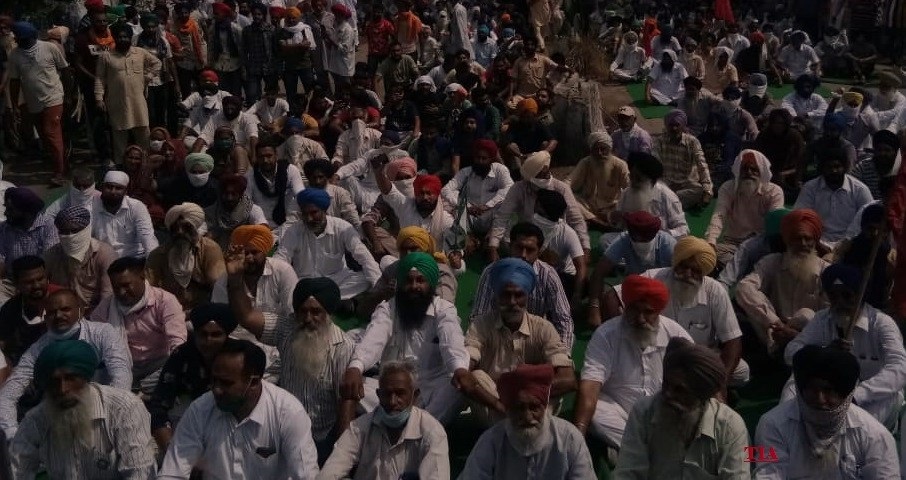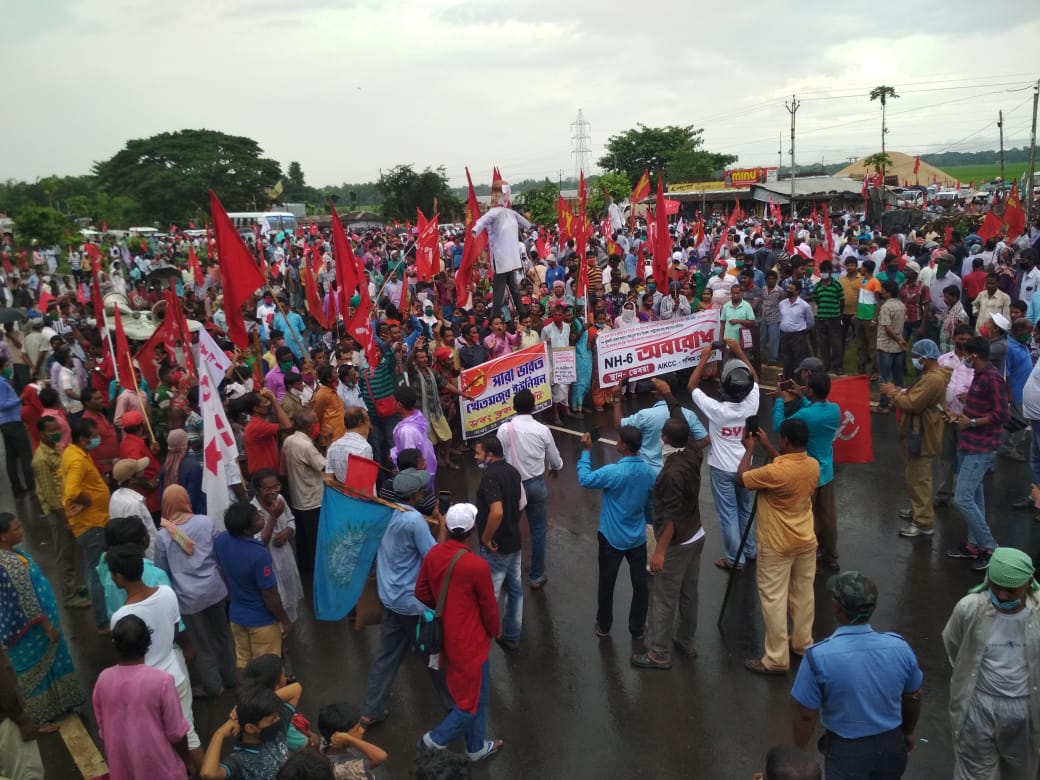Last Updated on September 26, 2020 1:06 am by INDIAN AWAAZ

WEB DESK
A number of farmers’ organisations took to the streets today to block roads and carry out rallies and marches in a nationwide agitation against the controversial farm bills. The protests will intensify, the farmers said, unless the bills are repealed.
Opposition parties like the Congress, the RJD and the Trinamool, as well as 10 central trade unions, have voiced their support for the farmers. Faced with the protests, Prime Minister Narendra Modi today hailed the farm bills as “historic” and hit out at the opposition for misleading the farmers. The government has said the bills will help farmers get better prices by allowing them to sell their produce at markets and prices of their choice. Farmers, however, fear the loss of the price support system (MSP) and the entry of private players who, they say, will put small and marginal farmers at risk.
Punjab farmers on Friday took to the streets and held protests at 125 sites against the three farm Bills cleared by Parliament, which they dubbed as “black laws”.
They blocked roads, including highways, to press the Centre for the withdrawal of the legislations, which are yet to get the President’s approval.
With the farmers squatting on rail tracks, the supply of essential commodities was hit. Shops, commercial establishments and vegetable markets remained shut at several places.
At least 31 farm organisations from Punjab, including the Bharti Kisan Union Krantikari, Kirti Kisan Union, Bharatiya Kisan Union (Ekta Ugrahan), Kisan Mazdoor Sangharsh Committee and BKU (Lakhowal), participated in the nationwide bandh.
The Malwa belt comprising Bathinda, Patiala, Ludhiana, Moga, Ferozepur, Fazilka, Barnala, Faridkot, Muktsar and Mansa areas saw thousands of farmers taking part in the dharnas. The Shiromani Akali Dal (SAD) and the Congress held parallel protests at various places.

As angry farmers occupied highways and shut down all non-essential traffic – the Punjab-Haryana border was sealed near Ambala – a key border crossing. The Delhi-Amritsar highway was blocked at several places by farmers from the BKU and the Revolutionary Marxist Party of India. Several of the farmers’ protests were noteworthy in that they refused to allow politicians to sit in with them.
Farmers also gathered in Uttar Pradesh’s Noida borders national capital Delhi, prompting deployment of police in riot gear to keep them from crossing the border. Around 200 farmers were stopped in Noida’s Sector 14A. After protesting for over three hours, they dispersed. In parts of UP, escalating protests led to the Ayodhya-Lucknow highway being blocked. Farmers also blocked the Delhi-Meerut highway in Modinagar near Ghaziabad.
In Bihar, opposition leader Tejashwi Yadav took part in a tractor rally to protest the farm bills. The RJD leader can be seen slowly driving a blue tractor down a main road in Patna as a large crowd of farmers, marshalled by armed policemen, march alongside.
In Bengal farmers’ groups affiliated to Left parties took out rallies in some districts and blocked roads for some time. There were protests in the rural belts of Hooghly, Murshidabad, North 24 Parganas, Bankura and Nadia districts, among others. Some carried agricultural produce and shouted slogans against the PM and Union Agriculture Minister Narendra Singh Tomar. Farmers’ groups linked to the ruling Trinamool Congress also protested; some farmers burned copies of the bill and effigies of Prime Minister Modi.
Members of the Karnataka State Farmers’ Association protested on the Karnataka-Tamil Nadu highway. Around 250 were taken into preventive custody at Mysore Bank Circle in Bengaluru. A group of farmers met with Chief Minister BS Yediyurappa but failed to reach an understanding. A statewide protest called for on Monday will go ahead as planned. In Tamil Nadu, farmers from the National South Indian River Interlinking Farmers’ Association protested in Trichy with human skulls, chained hands and nooses tied around their necks.
